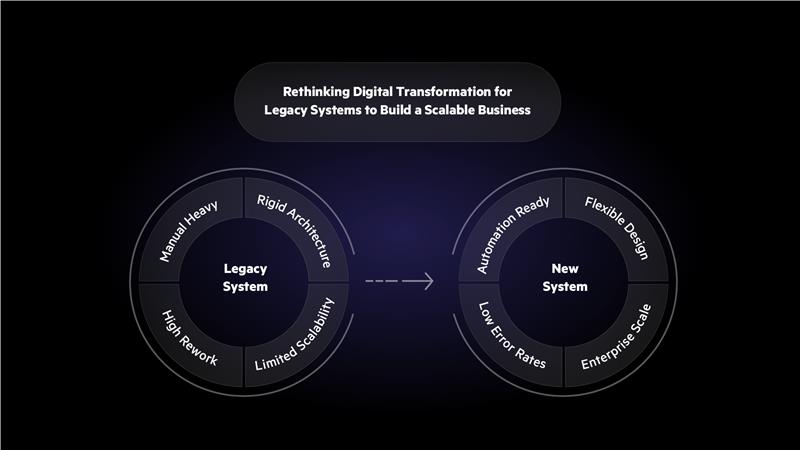How does one address the risk of data loss?
- Backup and recovery processes ensure the data is safely replicated in an environment other than the original storage location.
- Various options are available to back up data. It can be on-premises servers or different cloud backup solutions, including leading public cloud providers.
- On-premise backups have many management-related issues, and Cloud storage backup has emerged as a critical option in recent years.
Cloud backup holds a redundant copy of data that can be remotely accessible from anywhere in case of an outage or disaster to ensure business operations stay active. Storing data in the cloud can significantly improve business recovery time and restores data to the native environment quickly.
Why Azure?
Microsoft Azure has emerged as a leading cloud services provider, offering scalable solutions for businesses. Azure Backup, a backup-as-a-service (BaaS) solution integrated into Azure's public cloud services, enables businesses to safeguard critical data and customize their backup strategies to address various operational events. With Azure Backup, users can securely back up local files, folders, and data from SharePoint, Exchange, and SQL servers.
While Azure's backup solution shares similarities with other cloud providers, it offers unique advantages that businesses should consider. Understanding these key factors is crucial before opting for Azure Backup.
Privacy and security
Azure Backup addresses businesses’ significant concerns regarding privacy and security in the digital age. It incorporates multiple built-in security measures to safeguard data stored in the Azure cloud, keeping it isolated from other hosted business data. Azure employs an authenticated process that involves a passphrase not stored in the cloud, adding an extra layer of protection against breaches.
Moreover, Azure has an automated system that alerts users in case of attempted breaches or vulnerability attacks, allowing them to take immediate action before the attacker can access the backup system. Additionally, Azure automatically generates and stores recovery points for a duration of 14 days, enabling users to restore their data to any previous state within that timeframe. These security and recovery features make Azure Backup a reliable solution for businesses seeking data protection and continuity.
Pricing
Azure Backup offers an affordable pay-as-you-use method for cloud usage. Azure offers flexible pricing for businesses as per the requirements. Unlike its counterparts that use a flat rate for storage resources for backup, Azure charges according to the storage consumed at billing time.
Scaling
Azure offers unlimited scaling of server resources in real-time. Therefore, businesses can handle the infrastructure provided as part of the backup service. Data backup thus remains highly available and with no need for monitoring as well.
Unlimited data transfer
Azure does not restrict the amount of data transferred - inbound or outbound. This unlimited data transfer does not cause a change in pricing, speed, or availability of services. That is an added benefit for businesses in terms of scalability and affordability.
Data Retention
Azure offers short and long-term data retention services called Recovery Service Vaults. Although Azure has no limit to retention, the user can specify and define a retention policy for their data.
Ways of storage
Azure offers two ways of replication to keep data highly available. One is Locally Redundant Storage (LRS), which creates data copies three times in the storage rack. All copies reside on the same premises.
It is a low-cost option that protects data from hardware resource glitches. The second method is Geo-Redundant Storage (GRS). It is the default option and copies data at a geographical distance from the data source to protect data from possible natural disasters.
Application-Specific Backup
Another crucial benefit of Azure backup is that you can have an application-specific backup. This can help you avoid the need for additional fixes while restoring data from a file server, virtual machines, or SQL servers.
Flexibility in Data Restoration
Azure backup’s Restore-as-a-Service can be used to restore system state files from Azure without many changes. And also apply a system state to Windows servers with the Windows Server Backup utility.
Manage backup data at scale
Azure Backup offers convenient features to manage and monitor your backup operations effectively. With Backup Center, you can control and oversee your entire backup infrastructure from a centralized console, simplifying management tasks. The availability of Backup reports allows you to audit and analyze backup data using historical data and patterns, providing insights into your backup activities.
Furthermore, Azure Backup provides APIs, PowerShell, and Azure CLI, enabling you to automate backup policy and security configurations, streamlining the process, and enhancing efficiency. These capabilities empower users to streamline their backup operations, optimize workflows, and automate tasks for enhanced convenience and control.
Secure your backups
Azure Backup offers several essential features to enhance data protection and security:
- Role-based access control (RBAC): Users can be assigned fine-grained access privileges for specific backup operations, ensuring that only authorized individuals have the necessary permissions.
- Soft delete: To prevent accidental data loss, backups are retained for 14 days after deletion, allowing for easy recovery if needed.
- Multiple-user authentication: Protection against ransomware attacks is strengthened by enabling multiple-user authentication, which adds an additional layer of authorization for critical operations.
- Customer-managed keys: Users have complete control over data protection and access by utilizing customer-managed keys, employing 256-bit AES encryption for enhanced security.
- Private endpoints: Backups can be securely transferred to Azure Backup storage using private endpoints, ensuring a secure connection and reducing exposure to potential threats.
- Availability and redundancy: Azure Backup provides zone- and geo-redundant storage, ensuring data availability and resilience. Additionally, backups can be restored from a paired region at any time, further enhancing business continuity.
These features collectively contribute to a comprehensive and robust data protection framework, allowing businesses to have greater control, security, and reliability when leveraging Azure Backup.
Cost Savings
Azure Backup offers cost-saving measures and tools to optimize backup infrastructure and expenses:
- Infrastructure cost reduction: Azure Backup eliminates the need for additional backup infrastructure and reduces overhead costs associated with scaling and managing storage, allowing businesses to optimize their budget.
- Archive tier for long-term retention: Recovery points can be sent to the archive tier, resulting in significant savings in storage costs. This feature ensures compliance with long-term retention requirements while minimizing expenses.
- Selective disk backup: Azure Backup enables selective disk backup within Azure Virtual Machines, allowing users to customize their backup solution based on specific needs. This selective approach helps reduce storage costs by eliminating the need to back up unnecessary data.
- Backup pricing estimator: Azure provides a Backup pricing estimator tool that enables users to estimate precise costs associated with their backup operations. This helps businesses plan their budget effectively and make informed decisions regarding backup strategies.
By leveraging these features and tools, businesses can optimize their backup costs, customize their backup solutions, and accurately estimate expenses, resulting in greater cost efficiency and improved financial management.
Disaster Recovery in Azure
What Is Disaster Recovery in Azure?
Microsoft Azure is one of the world's largest public cloud platforms, offering a wide range of cloud services, including computing, storage, networking, DevOps, data analysis, and artificial intelligence. Azure provides organizations with a secure and scalable backup and disaster recovery solution that integrates with on-premises data protection systems.
This allows for the automatic restoration of services in case of accidental deletion, malicious attacks, or other disasters. Azure's backup and disaster recovery service is cloud-based and highly available, ensuring data and service continuity. With its extensive global presence, Microsoft Azure operates in 60 regions and has 116 availability zones worldwide, offering broad coverage and reliability for businesses seeking cloud services.

.webp)
_New_3%20(1).jpg)

_New_8.jpg)
%20Banner.webp)


.png)

.png)
